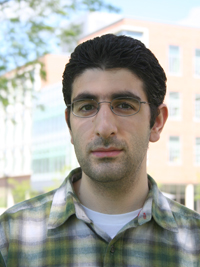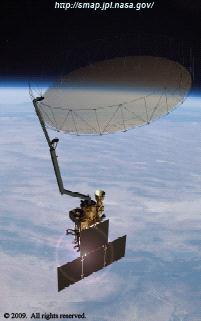Ruzbeh Akbar receives NASA Fellowship for SMAP Mission Research
SMAP is a satellite mission for mapping surface soil moisture and freeze/thaw states for the purpose of scientific advances and societal benefits.

 Enlarge
Enlarge
Ruzbeh Akbar, graduate student in electrical engineering, has been selected to receive a NASA Earth and Space Science Fellowship for the project, “Development of an integrated radar-radiometer estimation algorithm for retrieval of soil moisture from SMAP.”
This research focuses on developing a soil moisture estimation algorithm that simultaneously utilizes radar and radiometer measurements, and through applying electromagnetic inverse scattering techniques has the promise of substantially enhancing the quality of soil moisture retrievals from microwave satellite measurements. Previous methods use either radar or radiometer measurements, but not both, and therefore cannot take advantage the synergistic physical processes involved. Taking a simultaneous snapshot using both instruments is anticipated to enable such retrievals from NASA’s Soil Moisture Active-Passive (SMAP) mission. The SMAP mission is planned for launch in 2014.

 Enlarge
Enlarge
SMAP is a satellite mission for mapping surface soil moisture and freeze/thaw states from space for the purpose of scientific advances and societal benefits. According to NASA, direct measurements of soil moisture and freeze/thaw state are needed to improve our understanding of regional water cycles, ecosystem productivity, and processes that link the water, energy, and carbon cycles. Soil moisture information at high resolution enables improvements in weather forecasts, flood and drought forecasts, and predictions of agricultural productivity and climate change.
Ruzbeh Akbar will conduct his research under the direction of Prof. Mahta Moghaddam.
 MENU
MENU 
